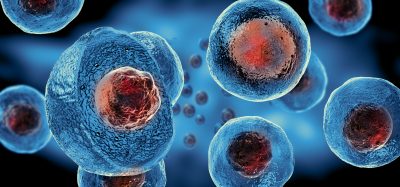Scientists identify protein which may lead to mesothelioma treatment
Posted: 31 March 2022 | Ria Kakkad (Drug Target Review) | No comments yet
A new study in zebrafish has shown the Hand2 protein may play a role in the origin of mesothelioma, presenting a target.


Researchers at the University of Colorado Anschutz Medical Campus, US and international collaborators have discovered that a protein critical in the embryonic stages of life is reactivated in certain cases of mesothelioma. Mesothelioma tumours, which sometimes appear decades after asbestos exposure, have been a mystery to medical professionals. This has made treatment challenging and the prognosis is usually fatal within a year of the diagnosis. The study, which was recently published in Nature Communications, highlights the origin of this cancer.
“Together with our basic research and clinical collaborators, we have discovered that in numerous mesothelioma tumours, the Hand2 protein has been turned back on, possibly altering the cells of the tumour,” said Dr Christian Mosimann, lead author of the study and Associate Professor of Paediatrics. “Now we are investigating what causes this and what makes such mesothelioma tumours different from tumours that do not have Hand2 present.”
The researchers found that Hand2 protein binds to genes at the beginning of life to control them during cellular development. It usually goes dormant in many tissues after an embryo fully develops. The discovery that the protein reactivates in some cases of mesothelioma offers the chance to possibly manipulate it to influence the course of the disease.
Zebrafish are commonly used to study the formation of different cell types because their translucent nature helps them observe the entire course of cell development rapidly due to how fast the fish grow. Specifically, they have been observing the mesothelium, a membrane that already develops in the embryonic stage and covers the heart, abdomen, intestines and inner organs, such as the lungs in humans.
The team’s work now showed that the Hand2 protein helps in the first formation of the mesothelium in the embryo. The researchers then observed that mesothelioma tumours in adults can re-activate Hand2, possibly enabling these cells to grow and move as they did in the embryo.
The next step for the team is to find out if they can influence the Hand2 protein and eventually create better treatments and therapeutic benefits in certain cases of mesothelioma without impacting other cellular functions. They will also study why not all cases of the cancer involve Hand2.
Related topics
Drug Discovery Processes, Drug Targets, Protein, Proteomics, Research & Development, Targets, Therapeutics
Related conditions
Mesothelioma
Related organisations
University of Colorado Anschutz Medical Campus
Related people
Dr Christian Mosimann








